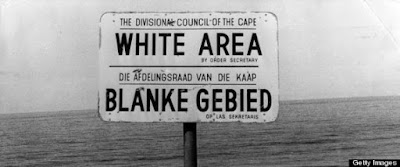The Specificity of Pain
‘White people weaponize both the concepts of individuality and equality in order to deny that they constantly perpetrate patterns of abuse by denying the specificity of marginalized experiences and pain (which, in itself is a form of abuse).’ – Cassandra L.
I sat in front of the man at the conciliation conference, and he looked at the file. For a long time, fixedly. Finally he spoke.
‘You said in your message that you were ‘slightly concerned about how this is going’. That really doesn’t reflect that you felt discriminated against, or that you were hurt in any way, does it? ‘Slightly’ concerned?’
I blinked. We were there to discuss a physical barrier that his organisation had installed to prevent cars from entering a site. That had also stopped me and other wheelchair users from entering the site, something they admitted that they hadn’t thought about.
I could feel my face reddening and my throat closing up. The last time I’d been in this room, I’d been at another conciliation meeting – a hearing where we’d talked about another discrimination matter, one which had cost me two years of my life and a fairly solid dose of PTSD. Sitting here, in front of another man in a suit, was actively causing me further pain. Pain, denied, unless I caused myself further pain by expressing it.
‘I wasn’t going to bleed all over my messaging to your employer,’ I finally told him. ‘I like her, and she’s being attacked from all angles about this issue. But yes, I was hurt. Yes, I was and am upset by the fact that I was physically prevented from going to work on this day. I don’t imagine you know what it’s like to be stopped from going to work in the morning…’
‘You don’t know anything about me!’ His face was red and his voice was a near shout. I didn’t know what trigger I’d hit – nor did I care. I collected every piece of my composure and injected it into my mother’s voice, channelled from the grave. Calm, British, reasonable.
‘I don’t know anything about you,’ I told him. ‘Nor do I want to. But I can look at you and see an able bodied man in a suit, who walked into this office. I am using that observation to make the assumption that you are not a wheelchair user, nor have you ever been prevented because of your physical disability from attending a place where you needed to go for work. Unless your colleagues bricked up your door in the office one day as a practical joke.’
To my alarm, I felt tears welling in my eyes – not only because I was wounded, but because this man was doing exactly what Cassandra L describes, denying the specificity of marginalised experiences and pain.
This was the same man who had told me, in a phone call, that ‘the collective good must outweigh the entitlement of the individual’.
It’s always hard to articulate the experience of discrimination and the impact that it has upon you. Nor do we always want to. There’s something peculiarly humiliating about admitting that you’re being marginalised, that you’re being abused, that you’re being discriminated against, that you’re being treated as a second or third class citizen. Our default response is to muster any semblance of dignity left to us and shield ourselves against the inevitable experience of 'pain denied' or an accusation of being angry, or bitter.
It’s the disability equivalent of wearing makeup to conceal the black eye he gave you in the kitchen for the third time this year – the grasping of any scrap of self esteem that might remain to you after all else has been torn away. Don the dark sunglasses, girls, because nobody needs to know that snot dripped from your nose as you sobbed, bleeding, in a corner. Nobody needs to know that in that one moment of furious injustice, your heart quickened and your mood grew bleak. Nobody needs to know that the thing that seemed reasonable to them at the time – because there’s always a reason, isn’t there? – has the cumulative impact of a thousand slaps, lightly delivered, more powerful for their subtlety. If you kick a dog every day, it will not take long before that dog flinches, expecting the inevitable.
Slightly concerned about how this is going. I wrote that, my dark glasses covering my eyes, my dignity wrapped around me like a bulwark against pity. Those thousand slaps, delivered daily. The psychologist who told me that that I was very lucky that the downstairs business had agreed to let them use their rooms, once a week, on a particular day. The businesses that I could not access, the workplace who refused to install an accessible toilet. The doctor who told me that in the absence of having an accessible toilet to address my menstrual needs, I could perhaps consider a hysterectomy. The man who described my human right to equitable access as ‘the entitlement of the individual’.
We fight this, daily – not just we people with disability, but every other marginalised group. Some barriers might be physical, but they are installed not just by workmen but by discriminatory attitudes. It’s all about power and control and the imbalance of power between those who are marginalised and those who hold the reins of power.
What choice do we have but to fight back? Like that dog, I do not want to be hurt again. But we only have two choices, to slink away as far as we are able, knowing that we will be kicked again tomorrow, or to bite. To fight back. And we are not dogs – there are others experiencing marginalisation and pain beside us. No choice, then, but to fight. Even when we understand that the fight is uneven.
We fight to live. And we fight together.



Comments
Post a Comment